Political Correctness: More than just being polite
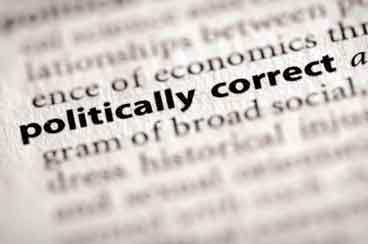
With the release of our Cheeto-colored presidential-elect Donald Trump’s derogatory remarks about women, there has been an increase in debate about the use of political correctness.
Being politically correct refers to avoiding language and actions that insult groups of people who are socially discriminated against. Mr. Trump has already stated his claim on the matter. He said, “We have to stop being so politically correct in this country.”
Many people agree, thinking that this generation in general is just too sensitive. Time Magazine journalists Bradley Campbell and Jason Manning wrote, “Even unintentional slights are acts of aggression, all hurtful words are a threat to their safety, and it is the responsibility of authorities to protect them.”
Elaborating on that idea, an anonymous sophomore said, “White millennials, usually females, [get] the most offended for minority groups.”
However, while statistically women are not a minority, they are treated as such. Living in a patriarchal society (a society of which men hold more power), women face sexism, at times so severe, that their basic human rights are still being questioned, even though they are not actually a minority.
For example, women in the US on average make 17.5% less than men. In addition, the hashtag #Repealthe19th trended on Twitter on October 12. It called for the repeal of the Constitutional Amendment that granted women the right to vote, something that took a ridiculous number of years for women to obtain, even though that is supposedly a given right for Americans. With that level of oppression and discrimination, women are given suitable justification for being offended on behalf of minority groups.
#Repealthe19th was, according to the journalist Abby Ohlheiser of The Washington Post, a, “real, anti-feminist hashtag that sits at the intersection of the alt-right’s sense of humor and genuine misogyny.” It’s difficult to believe that this absurd ‘joke’ exists at all, when women have progressed politically so far as to have a female presidential candidate. Yes, internet trolls, the 19th Amendment is definitely going to be repealed just because you don’t want Hillary Clinton for president. It’s not like half of the United States population consists of women, or that this is the 21st century.
It is doubtful, however, that everyone using that hashtag genuinely desired the repeal of the amendment. That begs the question, when does a statement or joke become offensive?
Sophomore Marisa Parisi said, “It depends what the person intended by making the remark, as it could be meant to be offensive or it could be said ironically.” Besides intention of the speaker, it also depends on the listener’s own background.
Senior Arielle Enos said, “I think a joke becomes offensive when it hits too close to home. If it’s about a touchy subject like religion or race.” Someone may not find a statement or action particularly derogatory until they are the one being attacked. Therefore, it is often difficult to understand why something could be hurtful.
Interestingly enough, when Mr. Trump was poked and mocked in the parody of him by Alec Baldwin during Saturday Night Live, he was extremely offended. Mr. Trump said in a tweet, “Watched Saturday Night Live hit job on me. Time to retire the boring and unfunny show. Alec Baldwin portrayal stinks. Media rigging election!” This, coming from the man who strongly believes people are too sensitive, and that being politically correct is unimportant. It’s perfectly okay for him to get offended at a sign of disrespect, but when others do they’re being thin-skinned. I believe that is called hypocrisy, Mr. Trump.
Of the people interviewed, everyone who was opposed to being PC had a common connection. Like Mr. Trump, they are not part of any minority. They have what is considered privilege, and due to this, have never experienced offense towards their gender, religion, sexuality, or race.
Sophomore Reilly Leconte said, “The people who don’t think political correctness is important are the people who are not insulted, disrespected, and misrepresented consistently.”
Senior Victoria Cameron found this to be particularly derogatory coming from public figures, such as politicians. She said, “When they say and do things that are unfair, untrue, and unfounded, it’s derogatory.”
Sophomore Olivia Cornell agreed, taking grievance especially from Mr. Trump’s impersonation in August of Asians, where he used disjointed speech to mock poor English-speakers. She said, “Being a minority myself I find Donald Trump’s political incorrectness and insensitivity to be very offensive.”
There’s a reason why “Treat others the way you want to be treated” is the Golden Rule. We are taught at a young age to respect everyone, and it is thoroughly depressing to think this is a controversial topic at all.

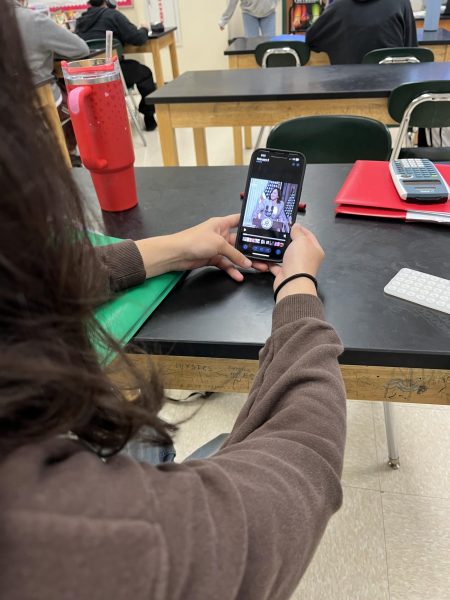
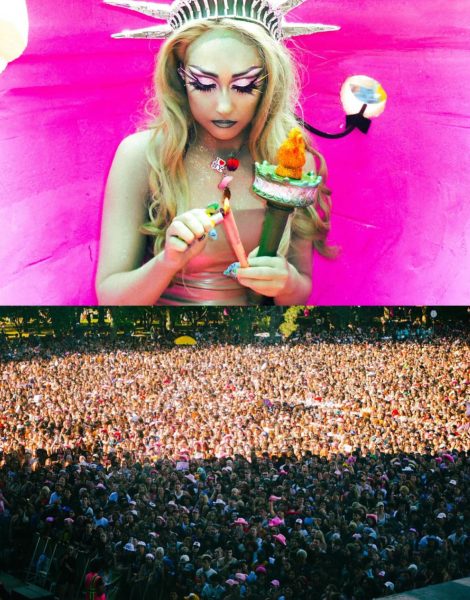


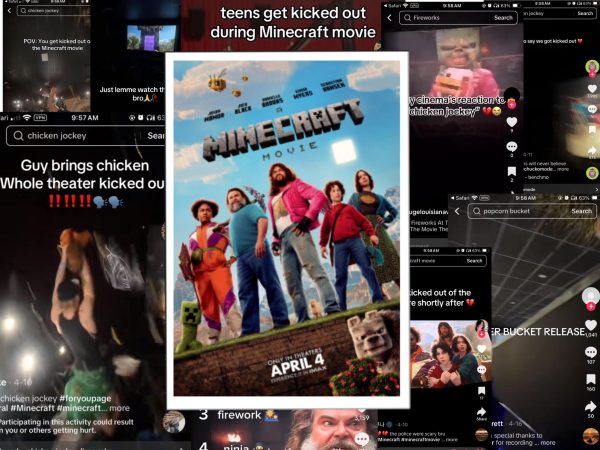
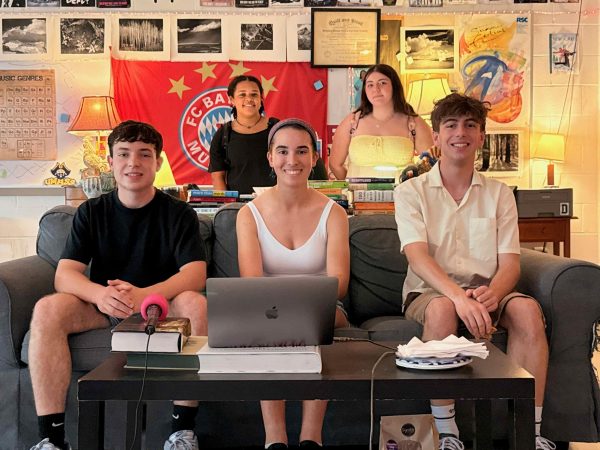

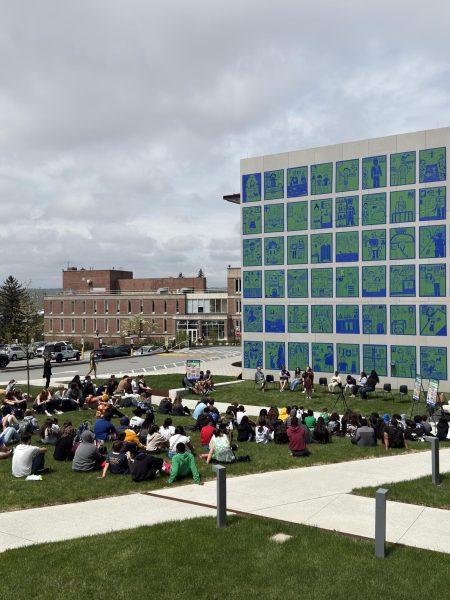

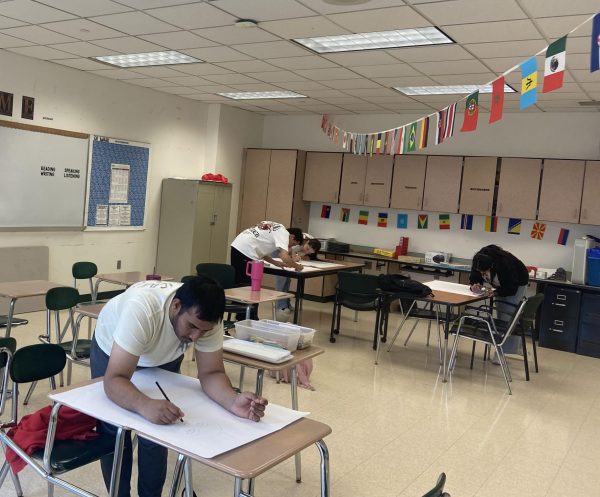

O.H. Lee • Jan 16, 2017 at 11:14 pm
It is quite laughable how pathetically sensitive some people are, and I’ll admit to painting with a broad brush here, but especially you whiny little privileged millennials.
I love the fact that “It’s a social justice issue” is so frequently parroted by children with so very, very little historical perspective. And, of course, being brainwashed by a cadre of hippy liberals for thirteen years of public schooling makes it entirely understandable. Just don’t expect someone who earns a living and pays their own way through life to take your churlish chirping seriously.
To all you young white boys out there: when you finish whatever level of education you intend on completing (your all going to Harvard, right? I mean, you’re white after all), you get back to me about how easy life is for you simply because you are Caucasian and have penis. Tcha!
To all the rest of you, and yes, that means all you really, really earnest little white girls, too, you’re going to get as far in life as you deserve to, no more, no less. But if YOU find that you just never seem to get as far ahead as you’d LIKE, well, don’t despair! Just look in the mirror and say it’s because the White Paternalistic Secret World Order is keeping you down! You’re off the hook! No need for any deeper examination of your own shortcomings. You little white boys, sorry, YOU’RE screwed! You’ll never have that psychological crutch to fall back on. If YOU don’t have a Ferrari by twenty five, you’ve got nobody to blame but yourselves.
Racism is joke. Sexism is a joke. Glass Ceiling, pahlease! There are highly successful people of all imaginable combinations of what STILL get called “disadvantaged” groups living out their lives here in this country. How do you account for that? Do you think these people were just lucky enough to slip through the cracks and escape the scrutiny and dream-crushing repression of the “old white guys in suits”? (the only group slur, by the way, that you all feel entirely comfortable with tossing about openly and without any consideration. Good little parrots!) Get a clue!
Well, I’m sure I’ve made no converts here. Those of you who wear your silly little social and political convictions on your sleeves like badges of honor, I get it. You’re all so full of teenaged angst, searching for your place in society. Yet, frankly, your all net-takers at this point in your lives. You really haven’t EARNED anything, except maybe your grades, so the fact that popular media wants to feed into your ego and tell you that your opinion matters, well sweeties, it just doesn’t. You haven’t earned a spot on the Adult Table yet. And those of you Social Justice Warriors who will move on to eventually work in the public sector, you will continue to be net-takers, living off the tax payers, in your capacity as social workers and the like. You should probably just get used to making excuses for yourselves and everyone else you perceive as underachieving, er, disadvantaged. You’re off to a great start. Might as well stick to what you’re good at.
Jack D'Atri • Feb 8, 2017 at 9:16 pm
I applaud you for what you said. I agree with it all. I’ve managed to stay away from all the liberal brainwashing for 11 years now, and I’m still running well. Let’s just hope that our new President sends a signal to end this nonsense (even though the social justice warriors will never stop whining).
http://thefederalistpapers.integratedmarket.netdna-cdn.com/wp-content/uploads/2016/11/love-trumps-hate-2.jpg
Jack D'Atri - Straight, White, Conservative, Male, and Proud to be a Deplorable Trump supporter! • Nov 23, 2016 at 9:47 pm
Because of this offensive article, you just lost a reader. I will never read or support the DHS Spectrum ever again.
Jack D'Atri - Straight, White, Conservative, Male, and Proud to be a Deplorable Trump supporter! • Nov 23, 2016 at 9:44 pm
You social justice warriors are the reason the country is in the state that it’s in. America is so divided. You are the most hypocritical people I have ever seen. You criticize Trump for not accepting the results, and then after election day, you’re all whining about his LEGITIMATE victory. Move on! He won! Also, regarding this article, if you all want to play the PC card, then so will I. I am offended as a Christian, white, conservative male that you would insult us and group us into one, how shall I put it, “basket of deplorables”. If you would just stop calling us “privileged” and just judge people for how they are, we wouldn’t be in this mess. If you just accepted the results, and admit that, like it or not, Trump will be your next President, we wouldn’t be in this mess. If we all just came together as one American people under one President, we wouldn’t be in this mess. And to all you teachers feeding your students this stuff, why not try getting both sides and letting them decide? Or are you afraid to look at a news source that says anything other than “CNN” or “Huffington Post”?
Jack D'Atri - Straight, White, Conservative, Male, and Proud to be a Deplorable Trump supporter! • Nov 23, 2016 at 9:46 pm
Any attempt to get rid of this comment will be considered as a violation of my First amendment rights.
Rita Berube !! • Nov 16, 2016 at 9:12 am
Thank God for our youth who still believe in what right and what is not, comforting to know our future will be strong and good for our great country . Thank you for such a beautiful and well written article from amazing students !!! Bravo !!!
Jack D'Atri - Straight, White, Conservative, Male, and Proud to be a Deplorable Trump supporter! • Nov 23, 2016 at 9:58 pm
Thank God for our millennial social justice warriors who still believe in what they think is “right” and what is “not”, comforting to know that our future hangs in the balance for our great country. Thank you for such an awful, offensive, and poorly-written article from uninformed students!!! Bravo!!!